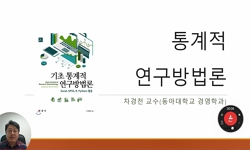This paper interrogates the theoretical foundations of Cross-Cultural Studies across the Social Sciences through an examination of the field ELT. Through an examination of ELT`s major theoretical and pedagogical moves, this paper illustrates how ELT i...
http://chineseinput.net/에서 pinyin(병음)방식으로 중국어를 변환할 수 있습니다.
변환된 중국어를 복사하여 사용하시면 됩니다.
- 中文 을 입력하시려면 zhongwen을 입력하시고 space를누르시면됩니다.
- 北京 을 입력하시려면 beijing을 입력하시고 space를 누르시면 됩니다.

An Examination of the Theoretical Foundations of Cross-Cultural Studies through an Analysis of Cross-Cultural Research in ELT = An Examination of the Theoretical Foundations of Cross-Cultural Studies through an Analysis of Cross-Cultural Research in ELT
한글로보기https://www.riss.kr/link?id=A102509401
- 저자
- 발행기관
- 학술지명
- 권호사항
-
발행연도
2016
-
작성언어
-
- 주제어
-
KDC
300
-
등재정보
KCI등재
-
자료형태
학술저널
-
수록면
497-517(21쪽)
- 제공처
- 소장기관
-
0
상세조회 -
0
다운로드
부가정보
다국어 초록 (Multilingual Abstract)
This paper interrogates the theoretical foundations of Cross-Cultural Studies across the Social Sciences through an examination of the field ELT. Through an examination of ELT`s major theoretical and pedagogical moves, this paper illustrates how ELT is by nature a field of cross-Cultural Studies. A closer examination of the history of ELT shows how the colonial genesis of the field indicates a skewed representation of power between native English speaking nations and non-native speaking nations both in terms of academic theories and pedagogies, as well as socio-cultural relations of power. A further analysis of how the field theorizes and represents various relations of power between disparate cultures in ELT literature explicates the dilemma of the objectivity and neutrality of Cross-Cultural research in ELT. In doing so, the analyses included in this paper thus necessarily raises questions regarding the theoretical foundations of research methodologies of Cross-Cultural Studies in terms of the reflexivity of researchers and the problematic of how, or if, relations of power are included in the studies. This paper questions whether studies that do not include these research perspectives properly represent the disparate cultures under study, or are more of a biased, or Orientalized (Said, 1979) interpretation of cultures.
동일학술지(권/호) 다른 논문
-
조선과 일본에 사는 시인 김시종 - 장편시집 『니이가타』에 표현된 `재일`의 의미
- 경희대학교 글로벌인문학술원
- 김계자 ( Kim Gae-ja )
- 2016
- KCI등재
-
아폴리네르, 폴 엘뤼아르, 이상(LEE Sang) 시의 상형적 시어 비교분석
- 경희대학교 글로벌인문학술원
- 이병수 ( Lee Byung-soo )
- 2016
- KCI등재
-
- 경희대학교 글로벌인문학술원
- 이삼출 ( Lee Sam-chool )
- 2016
- KCI등재
-
- 경희대학교 글로벌인문학술원
- 이선이 ( Lee Sun-yi )
- 2016
- KCI등재





 KISS
KISS







